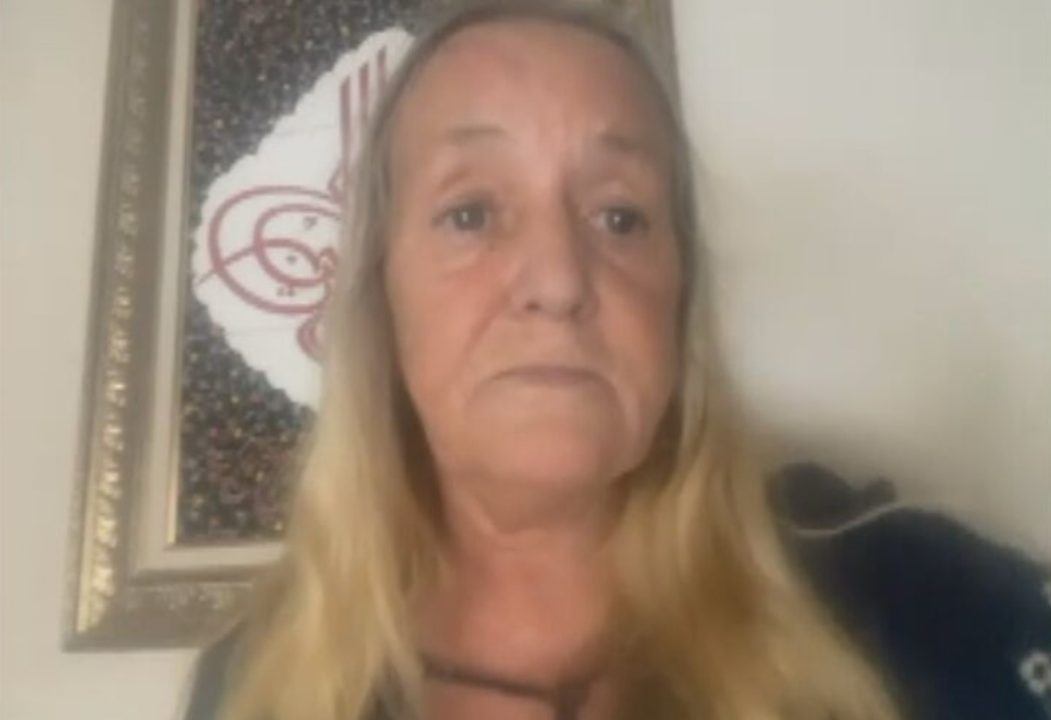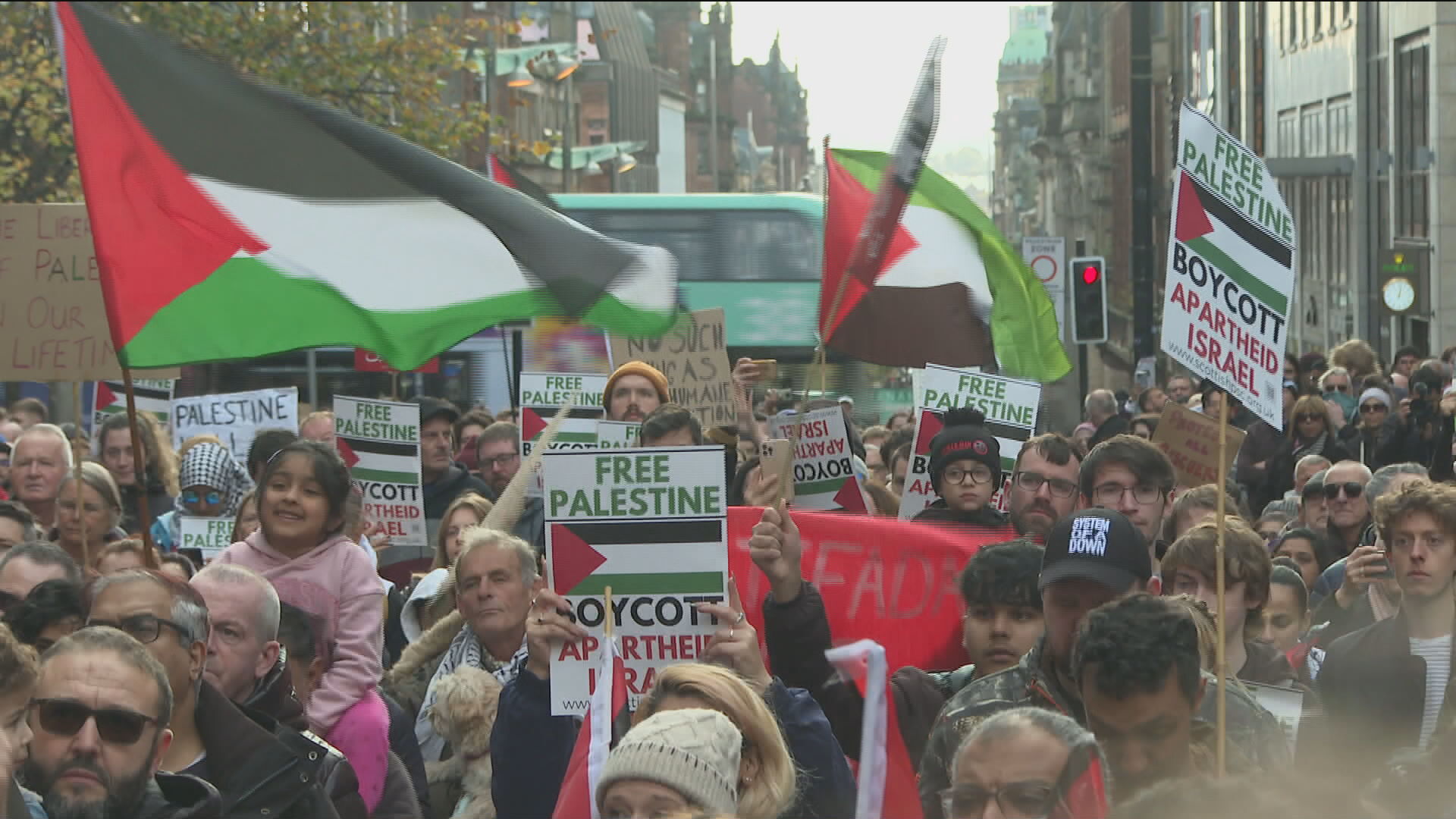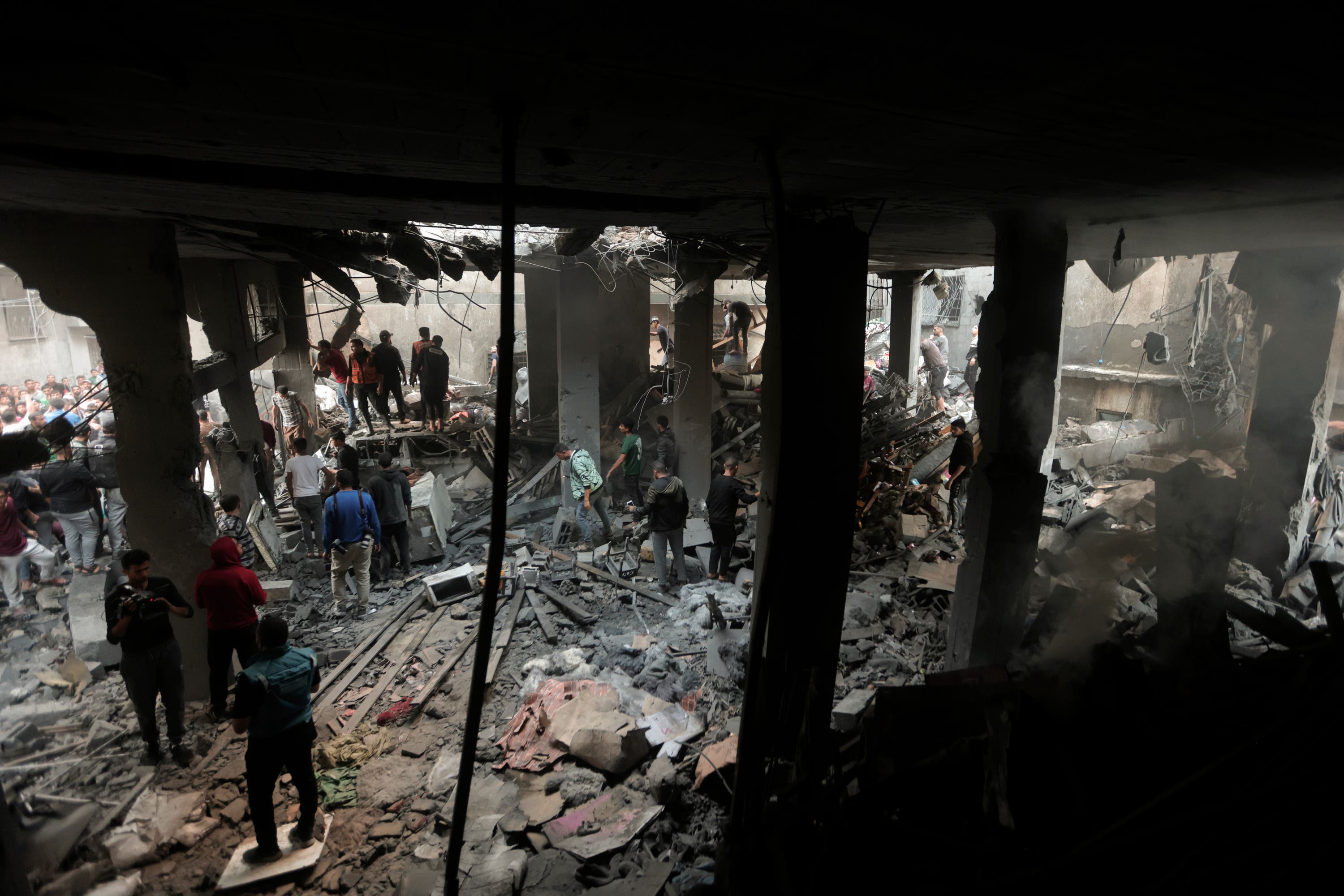Margaret Pacetta, 69, is joining hundreds of volunteers from across the world on vessels that began leaving Istanbul on Thursday.

Margaret Pacetta said it was a 'deep honour' to be involved in the flotilla.
STV News
A Glasgow grandmother is among those on board an “international freedom” flotilla taking aid to Gaza to break the Israeli blockade.
Glasgow Palestine Human Rights campaign founder Margaret Pacetta, 69, is joining hundreds of volunteers on board numerous vessels that began leaving Istanbul on Thursday.
An international group of NGOs, spearheaded by Turkey’s IHH Humanitarian Relief Foundation, is coordinating the mission to transport aid, food and medical supplies to Gaza.
Currently, aid agencies say only about a fifth of needed supplies are entering Gaza as Israel continues its air and ground offensive, pushing parts of the Hamas-run enclave to the verge of famine.
Ms Pacetta, from Bishopbriggs, told STV News it was a “deep honour” to be involved in the flotilla.
She said: “If we don’t continue to oppose the illegal blockade, Israel will keep committing genocide until Palestine is wiped out.
Ad
 STV News
STV News“People will starve to death. We’ve seen pictures of children looking like skeletons.
“It breaks my heart to witness that. How would people feel if that was their own child? It’s heart-breaking.”
The flotilla comes 14 years after ships led by a Turkish-government backed aid group entered eastern Mediterranean waters in a bid to break Israel’s blockade on Gaza by delivering aid and supplies.
The flotilla was intercepted by the Israeli military in a deadly offshore raid that touched off a diplomatic crisis between the two countries.
In the 2010 incident, nine pro-Palestinian activists aboard the Mavi Marmara aid ship were killed and a tenth died in 2014 after years in a coma.
Ms Pacetta has regularly visited the West Bank for charity work. She was previously detained by Israeli authorities at Ben Gurion Airport in 2016.
Despite the risks, she said joining the effort is “the right thing” to do.
Ms Pacetta said: “The people organising it have been doing it for years and years – they know exactly what they are doing.

AP
Palestinians look for survivors inside the remains of a destroyed building following an Israeli airstrike in Khan Younis refugee camp, southern Gaza Strip in November 2023
“Any of us could have been born in Gaza. To think that nobody cared is horrific. Now is my time to try and give aid to people who are suffering.
“I know I’m doing the right thing. I can’t just sit back and look at TV thinking ‘that’s awful’.
“It’s a risk I’m willing to take along with hundreds of other people.”
Earlier this week, the United Nations appealed for $2.8bn (£2.39m) on Tuesday to provide desperately needed aid to three million Palestinians.
The UN stressed that tackling looming famine in Gaza requires not only food but sanitation, water and health facilities.
Israel promised to open more border crossings into Gaza and increase the flow of aid into Gaza after its drone strikes killed seven aid workers from the World Central Kitchen who were delivering food into the territory on April 1.
The killings were condemned by Israel’s closest allies and heightened criticism of Israel’s conduct in the six-month-old war with Hamas, sparked by the extremist group’s surprise attack in southern Israel that killed about 1,200 people and led some 250 others to be taken hostage.
Israel says it puts no limit on the amount of humanitarian aid entering Gaza and blames problems in it reaching civilians on UN agencies, which it says are inefficient.
But humanitarian groups blame Israel’s blockade and red tape, with UK-based agencies describing the region as the “world’s most dangerous place to deliver aid”.
“Any of us could have been born in Gaza. To think that nobody cared is horrific. Now is my time to try and give aid to people who are suffering.
“I know I’m doing the right thing. I can’t just sit back and look at TV thinking ‘that’s awful’.
“It’s a risk I’m willing to take along with hundreds of other people.”
Earlier this week, the United Nations appealed for $2.8bn (£2.39m) on Tuesday to provide desperately needed aid to three million Palestinians.
The UN stressed that tackling looming famine in Gaza requires not only food but sanitation, water and health facilities.
Israel promised to open more border crossings into Gaza and increase the flow of aid into Gaza after its drone strikes killed seven aid workers from the World Central Kitchen who were delivering food into the territory on April 1.
The killings were condemned by Israel’s closest allies and heightened criticism of Israel’s conduct in the six-month-old war with Hamas, sparked by the extremist group’s surprise attack in southern Israel that killed about 1,200 people and led some 250 others to be taken hostage.
Israel says it puts no limit on the amount of humanitarian aid entering Gaza and blames problems in it reaching civilians on UN agencies, which it says are inefficient.
But humanitarian groups blame Israel’s blockade and red tape, with UK-based agencies describing the region as the “world’s most dangerous place to deliver aid”.
No comments:
Post a Comment